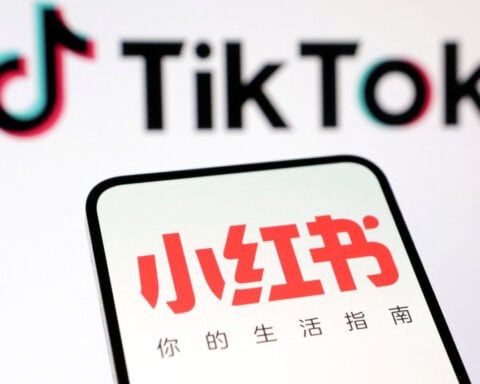In an era where financial pressures on young adults are at an all-time high, a controversial trend has emerged, promising a sweet solution to monetary woes. Sugar dating, often portrayed as a mutually beneficial arrangement between wealthy benefactors and cash-strapped young companions, has gained significant traction, particularly among college students drowning in debt.
A recent eye-opening discussion hosted by the anti-exploitation group World Without Exploitation (WorldWE) pulled back the curtain on the harsh realities - sugaring frequently involves coercion, power imbalances, and sexual exploitation akin to traditional prostitution.
During the webinar titled "The Bitter Truth of Sugaring," speakers Tamar Arenson and Megan Lundstrom made a strong case that while the sugaring lifestyle is marketed as a consensual relationship based on companionship, the grim truth is that it much more closely resembles the harsh world of sex work. A quick online search yields definitions portraying sugar babies as people who receive cash, gifts, travel, or other financial benefits from a wealthy benefactor in exchange for their attentive company. But when one compares that arrangement to the dictionary definition of prostitution as the exchange of sexual activity for payment, the muddied lines between the two become obvious.
The powerful sugar dating industry frames itself as an empowering, liberating way for young people to be "pampered" and live out their desires. Still, Arenson stated that this mainstream portrayal masks a more complex and concerning reality simmering under the surface. She noted that sugaring websites frequently target and aggressively market towards college students already struggling under the weight of mounting debt burdens. Scathing data shows that average student loan debt for a bachelor's degree skyrocketed from $22,300 in 2010 to $29,000 by 2018, with no signs of that precipitous rise slowing. As financial pressures on young adults intensify, the seemingly alluring temptation sugar dating, a quick influx of cash from sugaring can look like an enticing potential solution for those desperate to pay rent, buy groceries, or simply survive.

One of the largest and most well-known sugaring websites catering to this demographic, Seeking Arrangements, makes their blatant interest in recruiting cash-strapped college students abundantly clear. The site offers free premium membership upgrades to anyone signing up with a .edu email address tied to a university. This intentional ploy cultivates an imbalanced power dynamic right from the start, positioning wealthy and often much older benefactors as holding both financial and experiential superiority over their young, vulnerable counterparts who are predominantly female. Despite the initial marketing claims of these being simple arrangements based on "pampering" and companionship, the inherent inequities frequently lead to coercion where the struggling younger person feels pressured into providing sexual services on the whims of their richer partner.
Megan Lundstrom, drawing on her own first-hand experiences as a former sugar baby, revealed an even more sinister dimension to this disturbing industry – the potential involvement of third-party traffickers operating behind the scenes. She explained that for many individuals trapped in sex trafficking rings, sugaring websites like Seeking Arrangements are simply another tool used by their handlers to sell them, no different than listing them on exploitative platforms like the notorious Backpage. In these horrific situations, she divulged that all that matters is meeting the trafficker's rigid nightly money quota, solidifying the undeniable link between sugaring and outright sexual exploitation.
The evidence compiled paints an incredibly disturbing picture. What is publicly portrayed as a harmless, consensual, even feminist way for young people to live out desires and be "pampered" by a wealthy partner is revealed to simply be a rebranded, digitized form of the age-old sex trade preying on the economic insecurities and naivete of struggling youths. As the webinar's speakers Arenson and Lundstrom emphatically emphasized, a major shift towards more open, grounded, and honest dialogue around these deceptive arrangements is crucial to combating the powerful sugaring industry's well-funded propaganda machine designed to lure more vulnerable individuals into exploitation under false pretenses.

While the sugaring lifestyle is glamorously packaged using sweet language about empowerment, pampering, and living out one's desires, a dispassionate examination unmasks the harsh truth that these are simply exploitative, coercive arrangements where true consent is frequently impossible due to the dynamics at play. The inherent imbalances of power, experience, and finances between the parties leave little genuine choice for young adults already struggling to make ends meet, despite the marketing claims of it being a consensual and empowering dynamic. An industry that directly profits from the economic despair facing today's students represents a predatory and concerning new avenue of sexual exploitation that demands far greater public exposure, awareness, and, ultimately, abolition.


 FDA bans red dye No. 3 from foods
FDA bans red dye No. 3 from foods
 FDA bans red dye No. 3 from food and drinks in the US
FDA bans red dye No. 3 from food and drinks in the US
 Chipmaker NXP gets 1 billion euro loan from EIB for European projects
Chipmaker NXP gets 1 billion euro loan from EIB for European projects
 BAFTA Film Awards nominations revealed
BAFTA Film Awards nominations revealed
 Russia planned 'acts of terrorism' in the air, Polish PM says
Russia planned 'acts of terrorism' in the air, Polish PM says
 17-year-old star student-athlete shot and killed on the way to school
17-year-old star student-athlete shot and killed on the way to school
 Coco Gauff is into the Australian Open's 3rd round and still unbeaten in 2025
Coco Gauff is into the Australian Open's 3rd round and still unbeaten in 2025
 Sugar dating, often portrayed as a mutually beneficial arrangement between wealthy benefactors and cash-strapped young companions, has gained significant traction, particularly among college students drowning in debt.
Sugar dating, often portrayed as a mutually beneficial arrangement between wealthy benefactors and cash-strapped young companions, has gained significant traction, particularly among college students drowning in debt.






